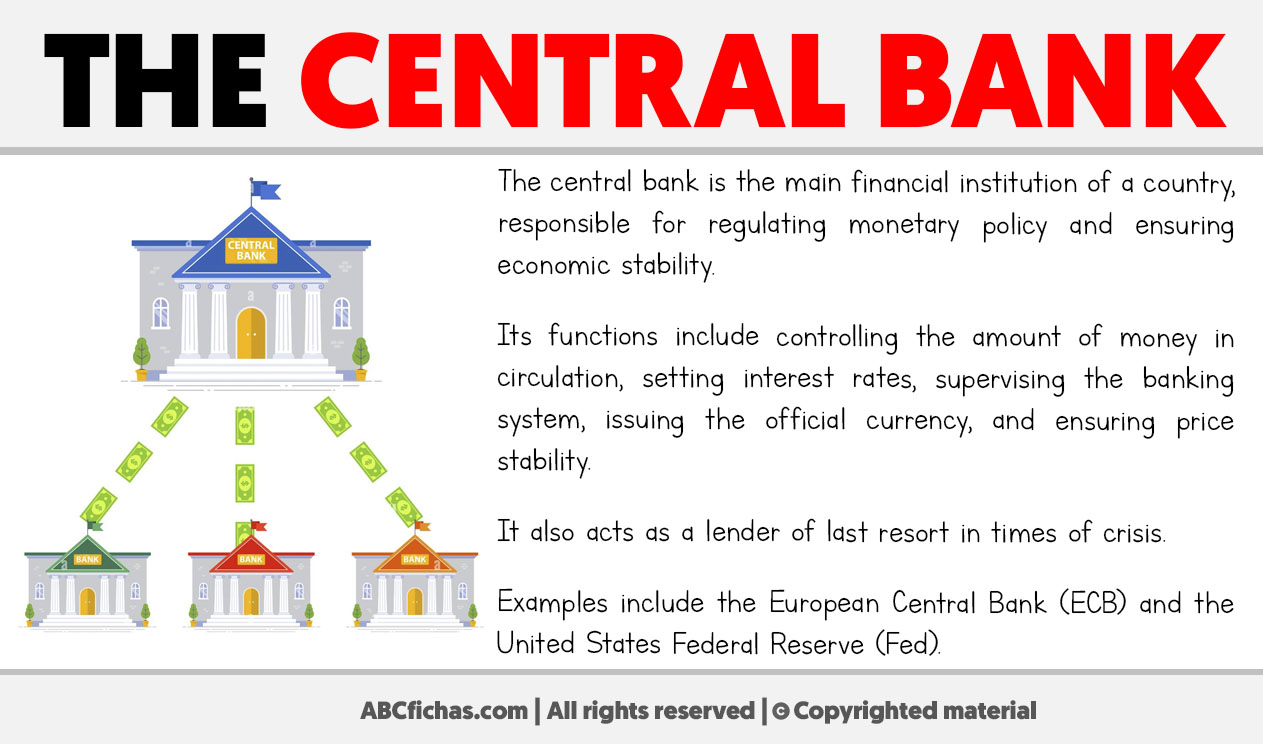The central bank is the most important financial institution of a country, responsible for regulating monetary policy, ensuring financial stability, and maintaining confidence in the economy. Unlike commercial banks, which serve individuals and businesses, the central bank serves the entire financial system and the government.

One of its main functions is controlling the supply of money in circulation. By increasing or reducing money supply, the central bank can influence inflation and economic growth. It also sets interest rates, which directly affect borrowing, investment, and consumer spending. Supervision of commercial banks is another critical role, ensuring that the banking system remains stable and trustworthy.
The central bank is also the issuer of the official currency. By managing printing and distribution, it safeguards the value of money and prevents counterfeiting. In times of financial crisis, the central bank acts as a “lender of last resort,” providing emergency funds to banks or governments to prevent economic collapse.
Examples include the European Central Bank (ECB), which oversees the eurozone, and the United States Federal Reserve (the Fed). In every case, the central bank is essential for guiding national economies, promoting stability, and ensuring that financial systems operate smoothly and effectively.